Even the most demure exploration of the fashion industry unearths some ugly truths.
With media more accessible than ever, messages scream from all directions about what is beautiful, what to buy, and who to be. Looking deeper, we are confronted by the disturbing realities of mass-production: catastrophic environmental impacts, slave- and child-labor, and a massive discrepancy between production cost and retail price, to name a few.
As Nate expounded in his last post, Henry David Thoreau had some pointed things to say about fashion. As an enduring voice for simplicity, many of his remarks about resisting the rapid, but not necessarily positive advances in this world sound just as relevant today as they were when he wrote them in 1854.
What would Thoreau say about the state of the fashion industry today, with it’s even further-reaching effects? How can we follow the advice of a man who wrote, ‘On the whole, I think that it cannot be maintained that dressing has in this or any country risen to the dignity of an art?’
Graphic designer and fashion enthusiast Joe Mitchell found inspiration in the words of Thoreau and created a line of t-shirts that were a fusion of fashion and simplicity for Moselle Clothing, a company that exists to create clothing in a way that diverges from the normally dark world of clothing manufacturing.
In a recent interview, Mitchell said he ‘originally started out wanting to put together a collection that was both natural and a bit manly. One that wouldn’t feel like more fashion clutter, but a bit of an escape from it.’ What emerged from those beginnings was a collection aptly named The Wild, with outdoorsy graphics and a distinct woodsman theme.
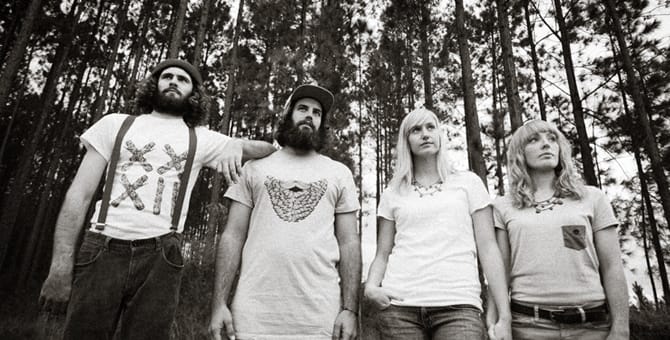
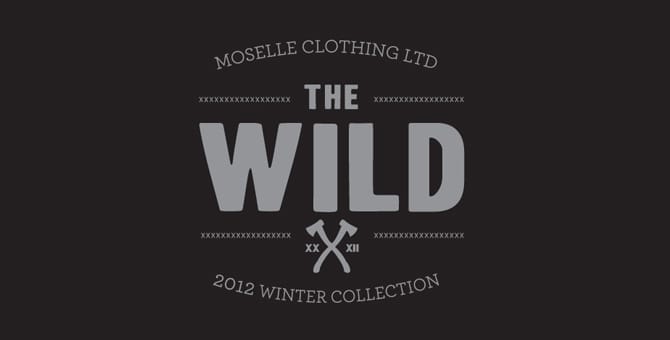
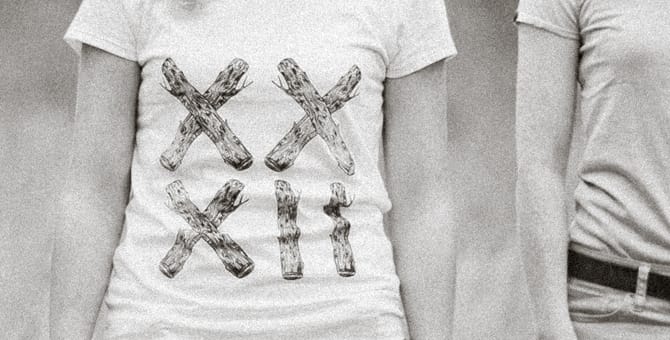
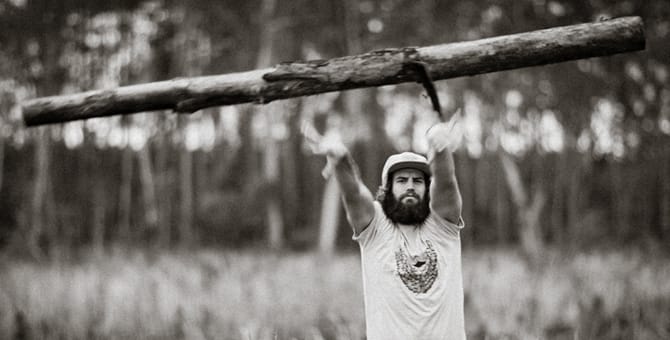
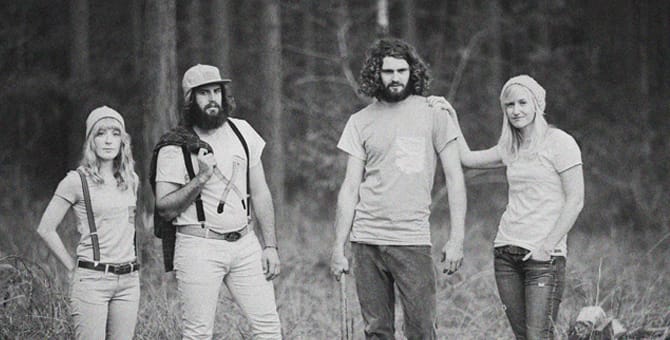
Not only did the collection channel Thoreau’s retreat into the woods, reflecting a return to the natural in it’s aesthetics, but also in it’s manufacturing process. The Wild was Moselle’s first range that used Fairtrade organic cotton.
As a Fairtrade certified cotton licensee, Moselle only uses materials that pay the farmers whatever rate is higher between a price level determined to be a minimum for a sustainable living, or the market rate. This rate means the farmers are usually paid at least fifty percent more than their cotton would otherwise fetch. In addition, fifteen percent is added to the base price and is used directly to further social, economic and environmental development in the farmers’ communities. This also means the cotton is produced without child labor or harmful working conditions, and is grown without the use of harsh chemicals.
The Wild is Mitchell’s second collection for Moselle since forming a relationship with the company in 2008. He met the founders while visiting Australia on an intensive University of the Nations course.
‘I had heard through the grapevine about Moselle,’ says Joe, ‘And when I quit my job in 2011 I asked to intern with them. Kindly they said yes, and I ended up interning with them for four months doing design and a bit of everything. While I was there I put together what would be my first collection for them, using designs by the mega-talented Claire Matthews. Since then I’ve been fortunate enough to design two more collections for them, The Wild and Calypso, which is due out in October.
Moselle is a small surf fashion label, currently based in Maroochydore, Australia, which is about an hour north of Brisbane. Catrina Pennington started the company in 2009. At the time she was involved with Destiny Rescue, a charity that works to end human trafficking through prevention and rescue programmes in Thailand, Cambodia, Mozambique & India.
In Thailand, Destiny runs rescue programmes in which staff visit brothels undercover and offer to rescue the girls working there, some of whom may be underage. After rescuing the girls they provide accommodation, food, and counseling, and if the girls desire, vocational training in jewelry and seamstress skills. Catrina had a vision of starting a label which could sell clothes made by the girls, thus offering them sustainable employment and true new starts in life. Moselle Clothing was born.
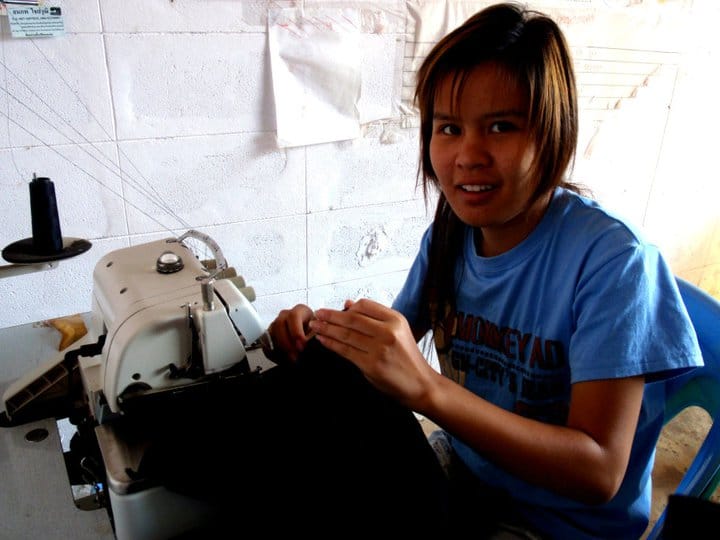
Moselle has now been around for three years and has secured Fair Trade Australia and New Zealand membership. Moselle clothing is sold at select retail shops and festivals in Australia, on their website, and at online ethical stores like Blue Caravan. ‘All of our tees and singlets,’ adds Joe, ‘Are made at our ethical production facility in Thailand by women who’ve been rescued from trafficking.’
Along with his continued collaborations and volunteer work for Moselle, Joe Mitchell is a freelance graphic designer who recently launched Sharpe Adze Design Co. and a long-time fashion enthusiast.
‘I like fashion because of the creativity — the idea of being able to design something which you get to wear after I find pretty rad. As a digital graphic designer it’s killer to design something that’s not just 2D.’
‘The fashion industry definitely has it’s dark side too. Sweatshops, unachievable standards of what ‘beautiful’ is, huge problems with pollution, environmental degradation, and worker poisoning from non-organic cotton farming, etc. In our culture we also tie fashion to identity, meaning fashion can be quite a superficial thing at times.’
‘Prior to working with Moselle, I’d read Naomi Klein’s book, No Logo, which documents the ongoing problem of sweatshops. I guess I got into ‘ethical clothing’ because I wanted to try to be a little part of the solution.’
Being part of the solution is not limited to the few ambitious, creative combatants on the front lines of ethical clothing production. Joe encourages every consumer to do their part.
‘I think one of the best ways of having a positive influence in the fashion sector is just starting to ask your retailer or brand a bit more about your threads.’
Holding clothing companies accountable for their chosen manufacturing methods is an important role to play. The more they see their customers caring about these issues, the more pressure they will feel to keep those customers happy.
When you approach a company or brand about their practices, ask questions like:
- What countries are their clothes made in?
- Do the factories where their clothes are made pay a living wage to their workers?
- Are the factories monitored?
- Are the factories certified as safe by FLO, FLA or under an SA8000 standard?
- Does the brand sell any organic lines?
‘If the person you talk to doesn’t know,’ says Joe, ‘Ask them whether they or someone else in the company could please find out and get back to you. If a company knows you’re a regular customer and have a genuine query, most will be happy to look into something for you.’ He also suggested asking questions on a company’s Facebook or Twitter page because questions asked publicly will usually get a quick response.
If you want to get involved in the fashion industry on a more intimate level, Joe suggests interning with labels like Moselle, People Tree, Patagonia, or Toms.
‘Or even better – why not start up your own Fairtrade organic or upcycled clothing line?’
Photos courtesy of Moselle Clothing and Joe Mitchell

